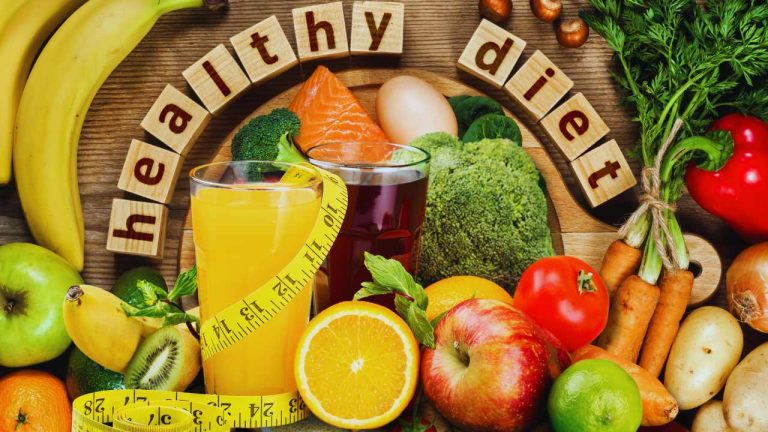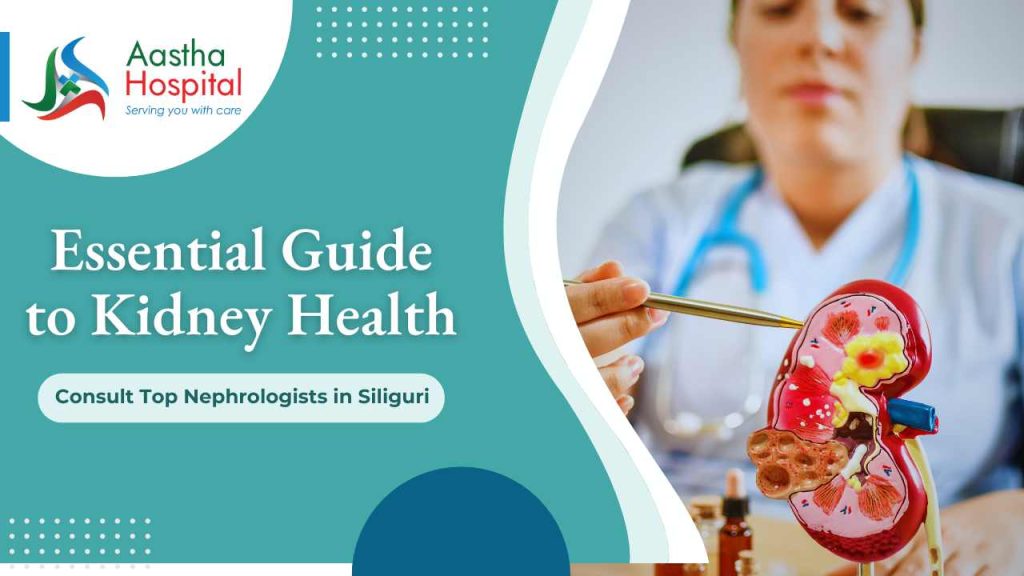Welcome to our guide on kidney health, presented by Aastha Hospitals in Siliguri. Your kidneys are crucial for filtering waste and keeping your body balanced. Understanding how your diet and lifestyle affect kidney function is key to staying healthy.
“Kidneys are the master chemists of the body. They filter and purify waste products and regulate the balance of water and minerals.”
At Aastha Hospitals in Siliguri, we prioritize kidney health with specialized care from our renowned nephrologists. Understanding how diet impacts kidney function is crucial for maintaining optimal health. Let’s explore our expert recommendations to support your kidneys.
IMPORTANCE OF CONSULTING A KIDNEY SPECIALIST IN SILIGURI
It’s important to visit a kidney specialist in Siliguri, like those at Aastha Hospitals, for personalized care and expert guidance specific to your kidney health needs.
These specialists can provide important advice on managing conditions like chronic kidney disease, hypertension, and other kidney-related issues.
Regular visits to a kidney specialist, called a nephrologist, are important. They check how well your kidneys are working, adjust treatments when necessary, and make sure you stay healthy.
DIET FOR HEALTHY KIDNEYS

Although it’s necessary for you to visit the best kidney specialist hospital in Siliguri or wherever you stay, following a kidney-friendly diet can help protect your kidneys from further damage. It means avoiding particular foods and fluids to prevent certain minerals from building up in your body.
1. Limit Protein Intake
Reducing protein intake can lessen the workload on the kidneys. However, the amount of protein restriction depends on the stage of kidney disease and other factors. Generally, high biological value proteins (those containing all essential amino acids) like meat, poultry, fish, and dairy are restricted.
2. Manage Phosphorus
Controlling phosphorus is important because kidneys may have trouble managing it as they weaken. Foods high in phosphorus, like dairy products (milk, cheese), nuts, seeds, and whole grains, may need to be limited in your diet. This helps prevent phosphorus from building up in your body, which can be harmful to your bones and heart.
3. Lean Proteins
It is recommended to eat lean proteins like chicken, turkey (without the skin), fish such as salmon or tuna, and egg whites. These foods are easier on your kidneys compared to red meats and have less phosphorus. They give your body important nutrients without putting extra strain on your kidneys.
4. Watch Sodium (Salt) Intake
It’s important to watch how much salt you eat because too much can make your body hold onto extra water and raise your blood pressure. To manage this, try to eat less processed foods, canned soups, and salty snacks. By cutting back on salt, you can help your kidneys work better and keep your body healthier.
5. Limit Sugar
To keep your kidneys healthy, it is important to cut back on sugary food. Instead, opt for whole grains like brown rice and whole wheat, and eat plenty of fruits and vegetables. Watch out for sweets, sugary drinks like soda, and desserts like cakes and cookies, as they can harm your kidneys over time.
6. Fluids and Beverages
When it comes to keeping your kidneys healthy, water is your best bet for staying hydrated. Talk to your doctor about how much water you should drink daily.
Cutting back on drinks like coffee, tea (which have caffeine), and alcohol is smart because they can affect how much fluid your body keeps and how well your kidneys work. Choosing water helps you stay properly hydrated and supports your kidneys to function well.
7. Healthy Diet to Follow
When considering foods that are beneficial for kidney health, several options stand out:
- Berries: Like strawberries, blueberries, and cranberries are full of antioxidants that protect your kidneys from damage.
- Leafy Greens: Like spinach and kale, which are packed with vitamins and minerals, and are low in potassium, good for kidney health.
- Olive Oil: A healthy fat that helps reduce inflammation and improves cholesterol levels, benefiting your kidneys.
- Cauliflower: Low in potassium but high in fiber and vitamin C, great for kidney-friendly meals.
DIET THAT SHOULD BE AVOIDED FOR A HEALTHY KIDNEY
1. Sugary Drinks
Sodas and sugary drinks can make you gain weight and lead to diabetes and kidney issues. They have lots of added sugars that raise your blood sugar and make your body less able to use insulin well.
If you drink them a lot, you might get overweight, which raises your risk for kidney disease. It’s better to choose healthier drinks like water or unsweetened tea to stay healthy.
2. Alcohol
Drinking alcohol can harm your kidneys because it makes you lose too much water, which in turn can lead to dehydration. This makes it harder for kidneys to filter your blood properly. Alcohol also affects how your kidneys control fluid and electrolytes in your body.
Over time, drinking too much can cause inflammation and damage to your kidneys. It’s best to limit how much alcohol you drink to keep your kidneys healthy.
3. High-Potassium Fruits
- Bananas: Known for their potassium content, which can be beneficial for those with healthy kidneys but problematic for individuals with kidney disease or reduced kidney function.
- Oranges: Another fruit rich in potassium and also high in vitamin C. The potassium content may need to be monitored based on kidney health.
- Kiwis: While nutritious, kiwis are also high in potassium and should be eaten in moderation if you have kidney issues.
4. Fruit Juice
Fruit juices, despite being natural, can have a lot of potassium and sugars. They don’t have the fiber that whole fruits do, so they can make your blood sugar go up faster. It’s usually better to eat whole fruits in small amounts and avoid or only have a little fruit juice, especially if your kidneys might not be working well.
5. Food with Artificial Additives
Processed foods often contain artificial colors, flavors, and sweeteners. These additives can be harsh on your kidneys and may not be good for your overall health. Choosing natural, whole foods without these additives is better for supporting your kidney health and overall well-being.
6. Dried Fruits
Dried fruits like prunes, raisins, and dried apricots have a lot of potassium and phosphorus. That’s good for you, but too much of these nutrients can cause problems, especially if you have kidney issues. So, it’s best to eat them in small amounts to stay healthy.
CONCLUSION
In summary, looking after your kidneys is really important for staying healthy overall. Following a kidney-friendly diet, like cutting down on certain foods and drinks, can help protect your kidneys. It’s also a good idea to avoid sugary drinks, alcohol, and foods that are high in potassium.
If you need personalized advice, it’s recommended to visit Aastha Hospitals in Siliguri and talk to their kidney specialists. Taking care of your kidneys can make a big difference in your health later on.


